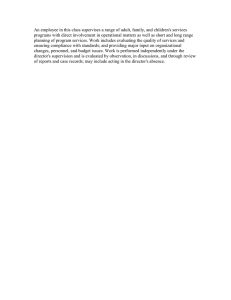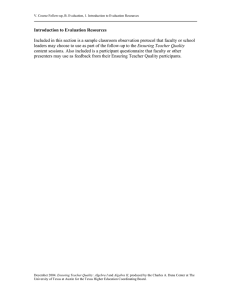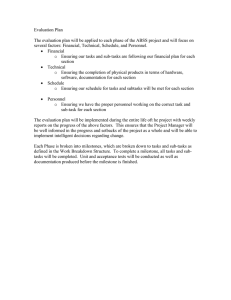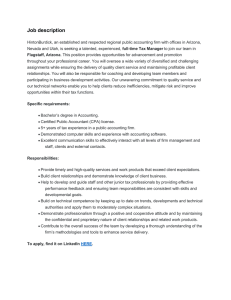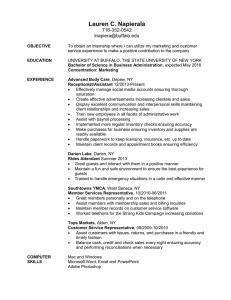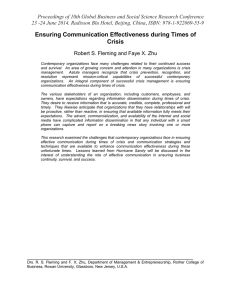Ensuring Compliance
advertisement
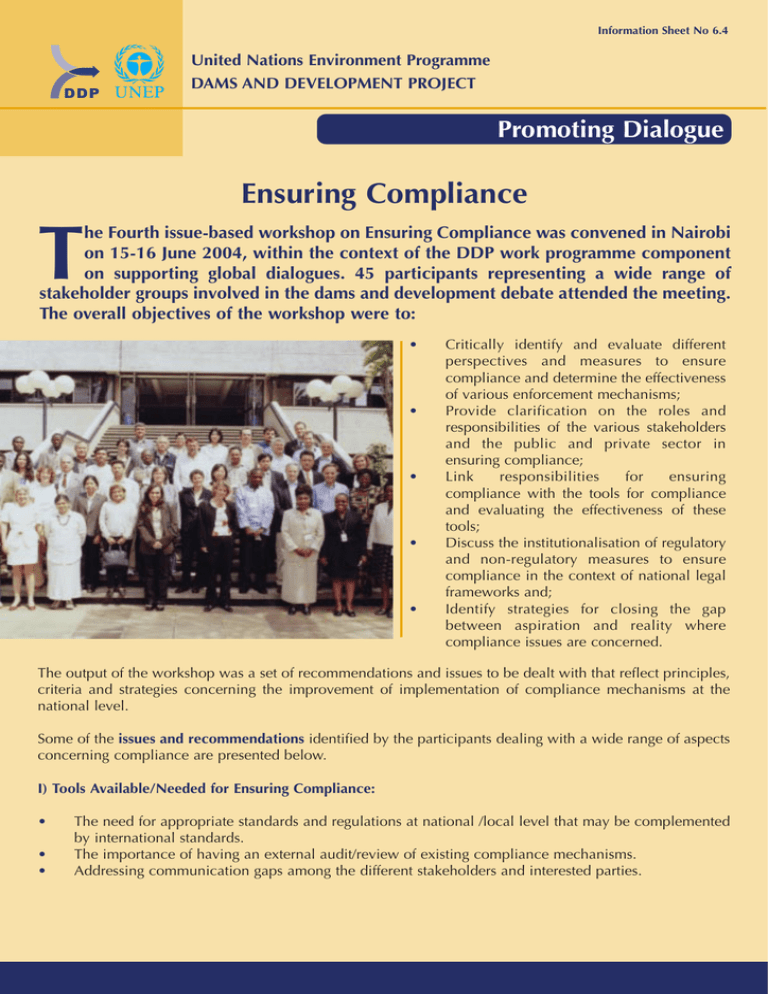
Information Sheet No 6.4 United Nations Environment Programme DDP DAMS AND DEVELOPMENT PROJECT Promoting Dialogue Ensuring Compliance T he Fourth issue-based workshop on Ensuring Compliance was convened in Nairobi on 15-16 June 2004, within the context of the DDP work programme component on supporting global dialogues. 45 participants representing a wide range of stakeholder groups involved in the dams and development debate attended the meeting. The overall objectives of the workshop were to: • • • • • Critically identify and evaluate different perspectives and measures to ensure compliance and determine the effectiveness of various enforcement mechanisms; Provide clarification on the roles and responsibilities of the various stakeholders and the public and private sector in ensuring compliance; Link responsibilities for ensuring compliance with the tools for compliance and evaluating the effectiveness of these tools; Discuss the institutionalisation of regulatory and non-regulatory measures to ensure compliance in the context of national legal frameworks and; Identify strategies for closing the gap between aspiration and reality where compliance issues are concerned. The output of the workshop was a set of recommendations and issues to be dealt with that reflect principles, criteria and strategies concerning the improvement of implementation of compliance mechanisms at the national level. Some of the issues and recommendations identified by the participants dealing with a wide range of aspects concerning compliance are presented below. I) Tools Available/Needed for Ensuring Compliance: • • • The need for appropriate standards and regulations at national /local level that may be complemented by international standards. The importance of having an external audit/review of existing compliance mechanisms. Addressing communication gaps among the different stakeholders and interested parties. In addition, the following recommendations emerged during the plenary discussions: • • • • • Development of clear and enforceable social and environmental standards related to dams. Inclusion of clauses from international conventions in contracts as a gauge to measure compliance (e.g. the Aarhus convention). Use of independent witness bodies integrated by diverse organisations including civil society. Establishment of a joint bilateral independent compliance mechanism in the case of either joint, bilateral projects or projects with transboundary effects. Inclusion of provisions for penalties, including holdbacks to be paid in cases of non-compliance with respect to environmental obligations by contractors that could be built into the contracts. II) Defining Stakeholder Roles and Responsibilities in Ensuring Compliance: • • • The streamlining of the roles and responsibilities of different government institutions. The responsibility of Multilateral Development Banks for ensuring compliance after project loans have been repaid. The role of NGOs as watchdogs to help in enforcing license provisions. In this regard, important recommendations emerging from the plenary discussions included the following: • • When standards and enforcement capacity is low the onus is on the stakeholders to agree on applicable standards. There is a need for a way of communication to account for local knowledge and also legal safeguarding of the Environmental Management Plan (EMP). III) Capacity Building Capacity building was also highlighted as a key challenge in enhancing enforcement and the capacity for implementation. In this regard, the key issues identified at the national level included the following: • • The particular need for capacity building of NGO’s and CBO’s regarding monitoring, compliance and enforcement. The consideration of compensation for time spent and costs incurred in monitoring bodies. In addition, the following recommendations emerged from plenary discussions: • • To enhance human, financial and technical capacity needs particularly in developing countries to ensure compliance. To build capacity among leaders representing and negotiating for the rights of the affected people in the construction of dam infrastructure projects. For more information please contact: UNEP - Dams and Development Project DDP Division of Environmental Policy Implementation United Nations Environment Programme P.O. Box 30552, Nairobi Kenya Telephone: (+254) 20 62 3891 Fax: (+254) 20 62 4763 e-mail: info@unep-dams.org web site: www.unep-dams.org
